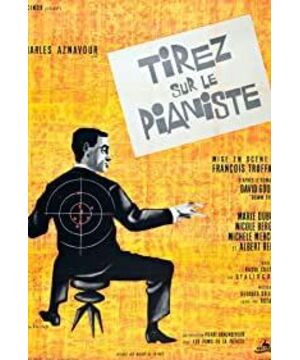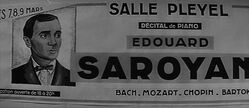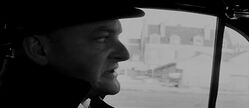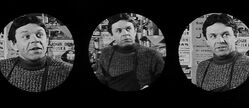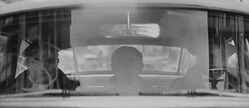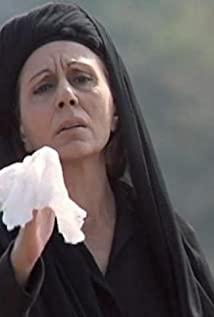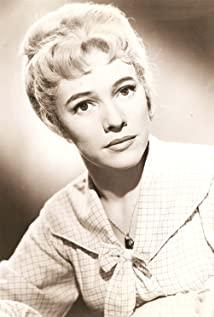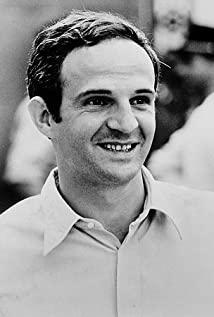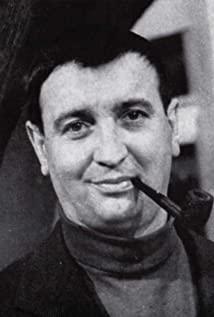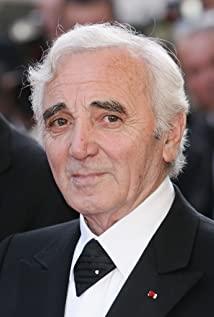Original address: http://www.qh505.com/blog/post/5155.html
The keys are beating there, the music is there, and the bar singer Bobby Lapointe may sing the song "Strawberry Praise": "Youth is gone, it's fate, there's no way..." Those men and women may Dancing enthusiastically, women twisting their sexy waists, men's eyes are fixed on their plump buttocks... Every night, every performance, in a small bar will be full of passion. But Charlie was always outside of them, sitting quietly, looking down at the throbbing keys, occasionally raising his head and not looking sideways at the almost frenzied customers.
Like this unpainted piano, it is simple, primitive, and will never become the center of attention. It is also a portrayal of helpless fate, as sung in "The Strawberry Praise". However, before Charlie returned to the tavern, Lina, the woman who loved him, died in the pure white snow, and for him. When the robber who divided the stolen goods shot her, she She slid down the smooth snow, and Charlie took his son to see her death, then hugged her and gently wiped the blood from the corner of his mouth-Charlie at that moment must be in pain, must be sad, And when he returned to this bar, to the place where Lina and himself once worked, why did he play those songs calmly?
In the final scene, Truffaut seems to express Charlie's ambivalence in a special lens language: half of the shot shows him sitting in front of the piano, while the other half is a baffle with white light, split in two. The world is actually a metaphor for separation. For a man who has just experienced the death of his girlfriend, he has also brought himself to an opposite emotion. But, it seems like a norm, like a habit of life, death has happened, death has happened again, death may happen again - when a new waitress comes in the bar to replace Lina's The location, when those guests are still dancing here, in a kind of circular story, like nothing happened.
Divided in two is a true portrayal of Charlie, who was once a famous pianist who became a tavern pianist; he used to be Ewald, but now he has a Charlie who forgot his old name; he used to have A wife and son, and now he's all alone after Lina was killed. Two identities, two names, and two women, it is in such a split story that Charlie becomes a marginal person, a split person, a person who looks down and doesn't care, and causes All this seems to be due to personality, just like when the bar owner Pini asked him: "Lina likes you, and I like her, but my soul is so ugly, why are you so shy?" Charlie's answer was: " I'm scared, yes, because I'm scared."
A man's fear may be because when he became a famous pianist as he wished, his wife Du Lisa jumped off the balcony and bid farewell to the world in a way of committing suicide by falling from a building. The death of his wife must have some kind of shadow for him, so when he should change his job, but he changed his name, when he becomes an unknown piano player, he just doesn't want his wife's tragedy to happen again, so for For a girl who likes him, he keeps a distance from her in a shy way, and finally distances himself from the possible emotional destination in "fear".
However, this kind of fear is not the unease about the past of death. For Charlie, "fear" is not just an emotion, but a character: when his wife Du Lisa told him, "It's getting darker and darker, I Confess to you and say goodbye to you." Why was Shusmi highly valued by that intermediary, why did she have the opportunity to show her talent on stage, and why did she become a famous pianist, just because Tu Lisha used her husband's career for her husband's career. My body made a deal with Nashusmi, "I lost myself more and more, I couldn't see Tu Lisha, she no longer existed." I exchanged my body for her husband's success, and I loved my husband deeply. , it was a split, "I split myself in half." So she ended that split by suicide. But it was more than Du Lisa who was divided into two halves. The husband named Aihuat was deeply in a divided world. "I should go to her and kneel to her." Aihuat thought so, but he turned around. He went away, but he walked out. When he felt that something was wrong, and when he came back again, there was no Du Lisha in the room, and she was already sinking on the black street in black pajamas.
Why didn't you turn to her? Why didn't you kneel? Why no consolation? Maybe Aihuat himself didn't know that he would leave, even if it was only for such a short time, he also entered the world of "I'm afraid" in a state of not speaking, because I was afraid, so I didn't dare to act, because I was afraid Therefore, he will not take the initiative - it is also "I'm afraid", which has become the inevitable fate of Charlie after Epworth. He used to be bold, he used to be not afraid, even from the moment he saw Tu Lisha, he had fallen in love with her, the ring was taken out of him and opened, like the most daring confession . But it was only once, like an impulse, and then completely enveloped in this fear.
When Nashusmi was sitting next to him in Tulisa's restaurant, he laughed and said, "We are playing a game of waiters and guests"; when Nashusmi asked him to go to the office to find him, he stood in front of the door a little uneasy , hesitantly pressed the doorbell; even though he became a well-known pianist, he fell into a contradiction between conceit and inferiority, "This is not the life of an artist." In marriage, he sensed Tu Lisha's unease, "she It's like fighting with something, we're done, she despises my success." She always spoke to herself like this in her heart; and when Tu Lisa finally made a deal of the flesh, in the case of losing herself that could lead to tragedy, he Still struggling in her heart, still hesitating, still different in appearance, and still heading for some kind of split - all of this is doomed that Tu Lisa will become a tragic woman, and it is also doomed that Lina will also die after becoming Charlie.
After Tu Lisa died, he changed his name to Charlie, he was no longer a famous pianist, and spent his days playing the piano in Pini's tavern, and everything seemed to be an "I'm afraid" reaction, even when Pini said Li Na loved him, and when he tried to get close to Lina, he was still living in the world of "I'm afraid": walking with Lina that night, he wanted to reach out and pull her, and wanted to hug her from the waist. She made fun of her with a grimace and wanted to invite her for a drink, maybe it was Lina's restraint as a woman, but Charlie persuaded himself without fully taking action, and gave up himself - and finally drummed up With enough courage, he said, "Let's go have a drink." He whispered, and when he looked up, Lina had already disappeared into the night.
However, Lina still fell in love with him and stayed with him. This can resolve his fear, can resolve his split personality? When Lina said that Pini resigned and the two pursued a free life together, he agreed, and then the two went to the bar to find Pini, when Lina asked to resign, when Pini angrily stopped and the two quarreled, Charlie However, Gu Zi walked to his piano, the noise behind him was endless, but he was in his own music, and his heart was never calm, "This cute girl is full of foul language." This is the evaluation of Lina, But he walked towards Pini again, and then the two started fighting, until the backyard. When the hand fell to the ground, Pini and him seemed to be playing a game again, slumped on the ground. Talking about Lina on the ground, when Penny said she was like a shrew, Charlie started fighting with him again - this turned out to be a comment on Lina, when Penny said it, he stood in Lina's place again aside. It was in this mutated emotion that my fear actually turned into a conflict, and my conflict turned into a loss for me. In the end, when the knife was stabbed into Pini's back, he himself seemed to be killed. The same, fell into the alley.
And when Lina rescued him to the basement and avoided the police's questioning, when Lina drove the landlord's car to the remote place where it was snowing, he said to her again, "Let's break up." Then He got out of the car by himself, while Lina drove away helplessly and dazedly. It seems that no one can grasp what Charlie is thinking, not even he himself, he always speaks to himself inwardly, always tells himself what to say but never does, he is shy, he is timid, he is contradictory, he is divided , a woman died in his escape, another died in his ruthlessness, and neither of them should have died - damn it was the Edward before and after the Charlie that never pointed to the future for himself "I'm afraid" .
Why be afraid? A man, a man with artist genius, a man who puts himself in a world without courage, is not just an individual. "I'm afraid" is actually a portrayal of the oppression and fragility of an era. Piano, music, and love seem to be all It exists in the spiritual sense, but it is always bound by material things. Money and body become inescapable cages: using Tu Lisa's body can exchange for the success of a pianist, and using Shusmi's money to create a genius, so this It is destined to be an era of division. For Charlie, he can use the flesh of the prostitute next door to satisfy his desires, but he cannot give all his love to Tu Lisa and Lina, and the dispute that Charlie is involved in for no reason is completely It's because of greed for money - his brother Chicago, Richard and others robbed him, but he didn't want to split the loot and ran away with the money, and when Chicago asked Charlie for help, he couldn't escape anymore: he lived in The address was betrayed by Pinney, his son Fido was kidnapped by them, and Lina was killed by their guns, and when he killed Pinney, what was the difference with them, Chicago said, "You are now a With one of us, you are back with the beast."
Art and love should be independent in the spiritual world, but they cannot escape the shackles of money and flesh, so the split character is a portrayal of the times, and the fate of tragedy is Truffaut's sigh, "The idea behind "The Shooting Pianist" is To make a film without a theme, only in the form of a detective story, to express all my views on glory, success, depravity, failure, women, and love." Truffaut used his unthemed lens language to narrate a fable of an era , there is irony everywhere, "black humor" everywhere: in the opening three minutes, a man is running in the dark, and the sound of a car chasing is heard behind him, and a tension develops for this, and the man suddenly crashes into the roadside The telephone pole, and then fell to the ground - thought he was the protagonist, thought it was a horror story; after the man fell, someone appeared from behind him, lifted him up, and told him that he was married, and the flowers in his hands were gifts To a pure and silent wife, the man also talked about love and almost divorced, but he was a complete stranger. The stranger opened his heart in the dark, and finally disappeared from the street corner and never appeared again.
The three-minute opening seems to be laying out, but it is far from the main line. It is like a strange man with flowers talking about having three children after he got married, and the man being chased, that is, Chicago, said to him: "Three children , the perfect number." Three minutes, also like a perfect opening, is just an irony of Truffaut. While the deceived people wanted to kidnap Charlie and Lina and took them to the car, they didn't feel the tension between the kidnappers and the hostages at all. The two talked about traffic safety, women, and men being caught by them. Seduce, then laugh, like a few friends chatting; and then kidnap Fido, tell Fido about his Japanese silk scarf, a new pen, and a metal tie, and swear that if you lied, my mother Immediately die - in the next shot, an old lady just collapses.
The three-minute opening that has little to do with the theme, the unfamiliar man who opens his heart, the light-hearted topic in kidnapping, the echo of the poisonous oath... Truffaut expresses his attitude towards the times in such an ironic way, and Charlie is just one of them. , is just a normal encounter, so in a world divided into two, in a life that dares to think and dare not do, in the helplessness of the eternal separation of body and spirit, how can independence, ideals, and eternity come , This era is the joke that was told: "My dad said that seeing a woman is equal to seeing all of them."
View more about Shoot the Piano Player reviews


